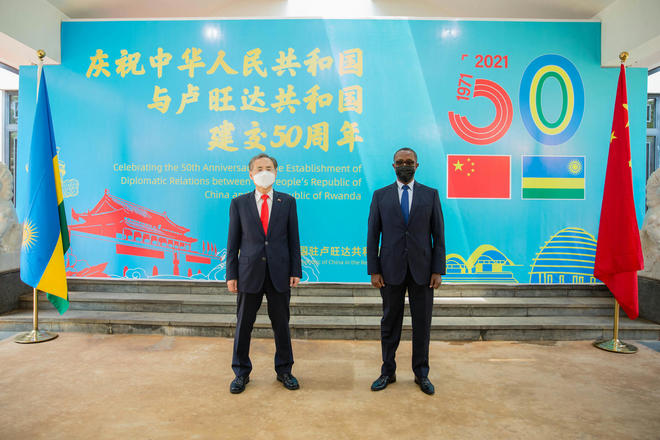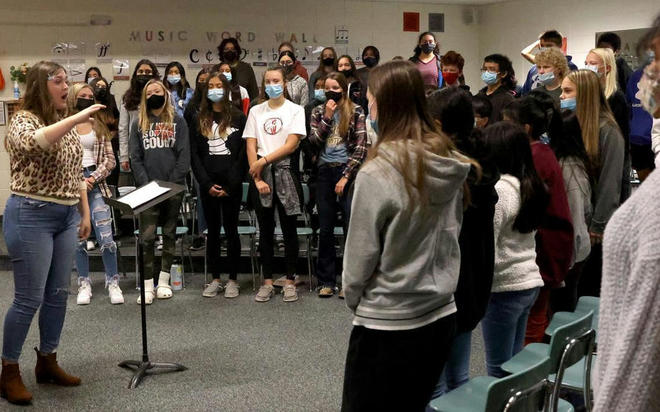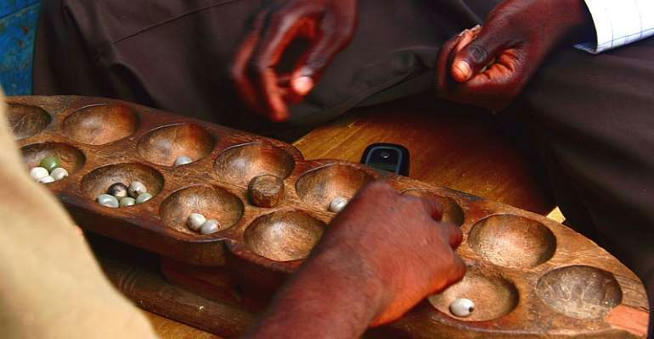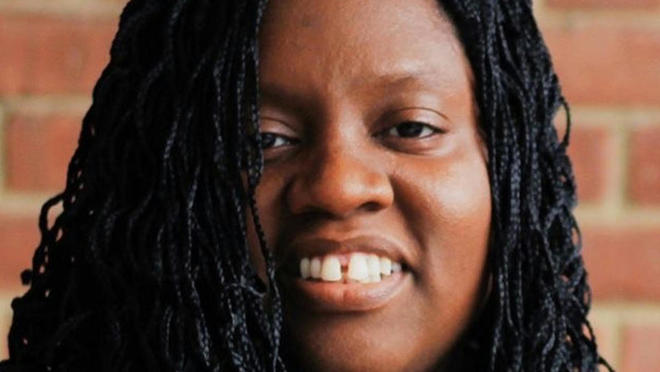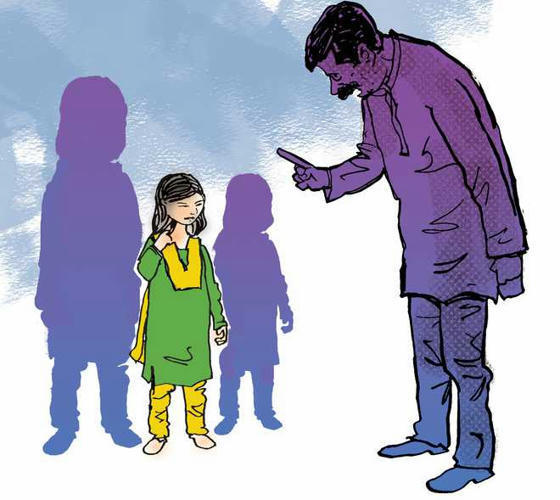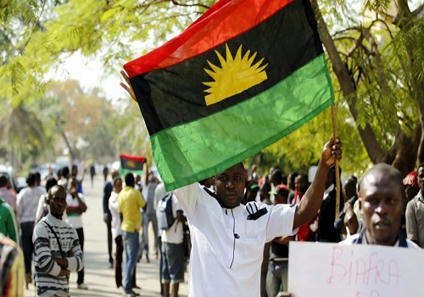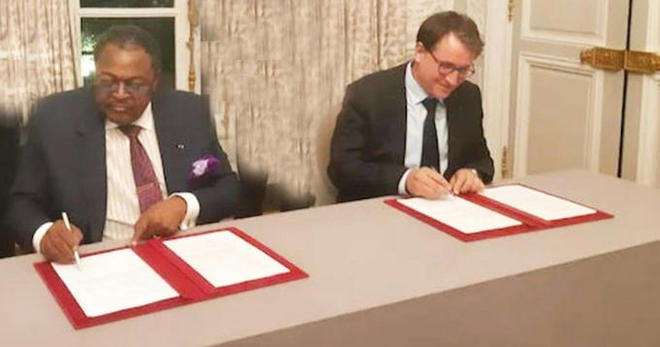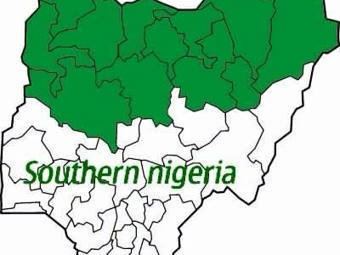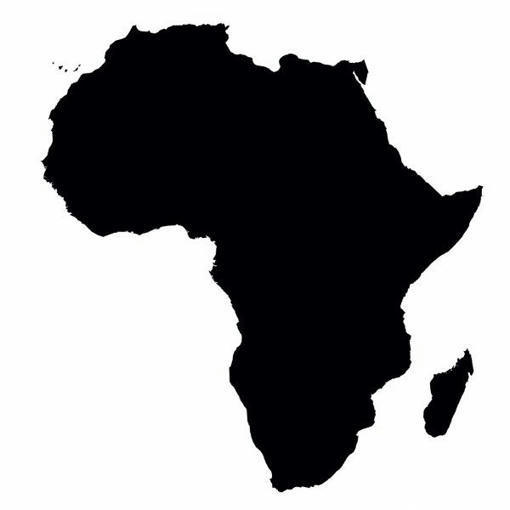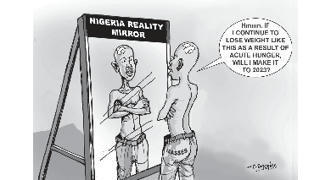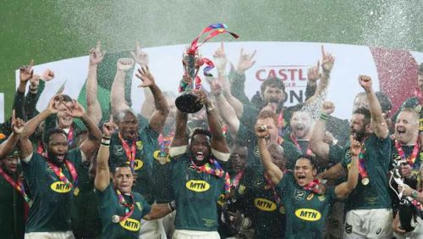In attendance was the Senior Economic Adviser to President Paul Kagame, Francis Gatare. Citing a Kinyarwanda proverb, “Intobyi y’amaraso irayitera” loosely translated as the fate of two fingers is to live together, Ambassador Hong said that bilateral relations between the two countries have kept growing stronger despite changes in international situations.
“Cindy created a strong program and fostered a love and respect for music here,” praised Peterson. “The administrators really help with recognizing the importance of music in the schools, too.” With her 80 eighth graders, Peterson presents “Pamoja,” with origins in an African proverb. “It’s a joyful song with rhythmic energy, and the lyrics mean ‘We work together, we reach together, we grow together, we go far,’” she said.

“Over the weekend, our skills were tested the most. Two young girls — Phylisa and Winshae — were abducted by a man who was out on bail. Madam Speaker, when I heard of the act, I cringed, and as a mother, my heart broke and I cried. Like many others I had several sleepless nights,” she said. “An African proverb states that it takes a village to raise a child and Madam Speaker, our village came out in droves to rescue our children. We had a manhunt on the ground, including our security forces. People came from near and far and I want to thank each and every citizen and volunteer that assisted the security forces. Thank you to those who prayed for their safety,” she said. She continued: “Did you see what happened in Eastern St Thomas? An African proverb says, when spider webs unite, they can tie up a lion! Madam Speaker, my tears of sadness quickly turned to anger and I want to warn those monsters in our society that we are watching and we will not accommodate your nastiness. We will not accommodate your stalking, raping and terrorising our children. I am calling on all well-thinking Jamaicans, men and women, to push them out from the darkness. Let us know who they are. Everything done in the dark must come to light,” she added.
There is this popular African proverb that says, “A child who washes his hands well is given a seat at the table to dine with the elders.” This is because age is no limitation when it comes to greatness. Many African societies believe character is what opens doors of opportunities and respect. The reverse also holds true. An elder or a chief who, despite the position he holds in the society, decides to play the game of Oware with a commoner, loses the reverence accorded him as he is subject to the rules of the game.
“We had our first (online) convening in March 2021,” Christina said. Since then, Christina has facilitated monthly sessions, recorded live and posted online, with various stakeholders for NetWorked. Topics include various grants, programs and technical assistance that provide cross-sector investment in non-profit community development organizations as well as for-profit businesses. “We want to make bold changes and attack real problems,” Christina said. What drives her to do this work? “I live by the African proverb that says, `I am because we are,’” she said. “We’re interconnected. I want to bring about changes in people’s lives and make this a better place.”
We use it to teach valuable lessons. You see, history teaches us lessons that protect the present. We learn how not to treat each other. We learn how to treat each other. Teaching a full history is vital to our future. Instead of a Bible quote, I want to share an African proverb: “The way out is back through.” Do not fight against teaching our students the truth about our country.
THERE’S an Arabic Bedouin maxim, “Abuses are signs that the bond is deep and strong.” Similarly, a long North African proverb of Tunisia states that “those who don’t abuse occasionally are as dry as a piece of wood in the desert. They die friendless.” Now this is the most interesting proverbial observation that those who don’t abuse, die friendless. Utter this saying before any true-blue Haryanvi or Punjabi and he’ll latch onto it because in northern India, abuses are like oodles of ketchup on the food of conversation.
There is a popular African proverb that says: “It requires a lot of carefulness to kill the fly that perches on the scrotum”. This saying is indeed what Nd’igbo should be telling themselves in the Anambra gubernatorial election and more importantly the 2023 general elections. In the recent past, the clamour for secession in Southern Nigeria has grown even stronger especially in the Southeast and Southwest regions of the country. A lot of reasons could be attributed to this clamour but it is instructive to note that this is not the first time that Nd’Igbo is asking to leave the Nigerian state.
The project which is for satellite deployment in the Nigerian market has all the trappings of being a “good thing in a big package” delivered to Nigeria yet again by the Globacom Chairman. Like a popular Igbo proverb says,”Okuko ga abu oke na-esi na eju” (translates roughly to “the chicken that will be male starts right from the egg”). How big a package the deal signed at the Elysee Palace in Paris is was symbolised by the presence of the French President, Mr. Emmanuel Macron, at the ceremony.
As the Yoruba proverb says, ‘20 children can’t play for 20 years’. Can we really say the same for Basketmouth and Buchi? We doubt it. From hustling as rookie comedians to becoming a formidable force in the comedy world, this duo has shown us how to pull our friends along with us on our success journeys. They are truly deserving of their flowers.
When middle belt of Plateau, Benue and Southern Kaduna was being massacred, Southern Nigeria pretended these were events happening in far-away lands. Now the chicken has come closer home and everyone is activating Plan B. Maybe if we had heeded the Yoruba proverb: “iku to n’pa ojugba eni, oowe lo n’pa fun ni” (the death of one’s close associate is a proverb for all his/her friends that death is a debt we all will pay someday!); perhaps we could have averted this calamity. We all pretended it was their thing, even after Dr. Obadiah Mailafia warned us.
« Tout a une fin, sauf la banane qui en a deux. » (Proverbe africain) Le continent africain est bien connu pour sa sagesse proverbiale. Cette sagesse exprime bien souvent des pensées pleines de sens qui peuvent aider les chrétiens à entrer dans une intelligence plus grande de leur foi.Chaque mois, La Croix Africa reprend le proverbe proposé dans le missel Prions en Église Afrique. L’application chrétienne de la sagesse de ce mois nous est proposée par le Frère Romain Simtoro.
I wasn’t going to offer any opinion on the matter of the Ikoyi collapsed tower for several reasons but I see a lot of misconceptions being peddled here .
When accidents happen, everyone suddenly has an opinion as to the reason why the accident occurred. Hmmm, no wonder the Yoruba adage says ‘eniti cocoa e ba ye, lo mo lo’ … it is the farmer whose cocoa tree survives that knows how to plant. However, accident always happens because something has gone wrong not necessarily due to negligence or incompetence . Sadly oftentimes our lynch mentality obscures our capacity to investigate the root cause of what went wrong so as to take preventive measures. Someone must always be blameworthy!
there is no gainsaying that the higher the numbers, the brighter the collective fortunes of groups or individuals that populate a given political party. This, succinctly, is in sync with a popular African adage, ‘a tree does not make a forest’. Or, perhaps, another that says, ‘when a collective urinates in a spot, it conjures a foam!’

Aux termes des dispositions de l’article 363 du pénal Guinéen « La diffamation est toute allégation ou imputation d’un fait qui porte atteinte à l’honneur ou à la considération de la personne ou de la collectivité à laquelle le fait est imputé. L’injure est constituée par toute expression outrageante, terme de mépris ou invective qui ne renferme l’imputation d’aucun fait précis ». Il ressort de la lecture de cette disposition que toute expression outrageante ou de mépris proférée contre une personne qu’elle soit publique ou non fait courir à l’auteur des sanctions pécuniaires ou privatives de liberté. Ce qui implique comme le disait un dicton Africain « qu’il faut plusieurs fois remuer la langue avant de parler » car toute intervention blessante avec des termes de mépris sont sévèrement sanctionnée par la législation guinéenne. Si la liberté d’expression nous permet de dire tout ce que nous voulons, cependant cette liberté se trouve être encadrer par la loi d’où la l’incrimination de certains comportements liés à l’exercice de cette liberté d’opinion.

The first Christian missionaries were pioneers, who with their desire to spread the gospel of Jesus Christ in foreign lands, brought remote and isolated areas in Zimbabwe in touch with Christianity and school education for the first time. By Onesimus A Ngundu THE history of Christianity and formal education in Zimbabwe dates back to Christian missionary work. The late David Livingstone, a member of the London Missionary Society, travelled extensively in Zimbabwe, Malawi and Tanzania between 1851 and 1872. He was not only an explorer, but was also a committed Christian and pioneer of tropical medicine. On Christmas Day, 1859, John Moffatt, William Sykes and Morgan Thomas of the London Missionary Society arrived at the royal home of King Mzilikazi, who and his people had trekked north from the Marico district of the Transvaal and got settled in the area now known as Matabeleland around 1837. Mzilikazi allocated the three missionaries a piece of land on which they established Inyathi, the first Christian mission station in Zimbabwe. The first Christian missionaries were pioneers, who with their desire to spread the gospel of Jesus Christ in foreign lands, brought remote and isolated areas in Zimbabwe in touch with Christianity and school education for the first time. A Zulu proverb captures the story of the introduction of Christianity and African education in Zimbabwe: “No sun sets without its histories.” Formal education Anglican Church missionaries, Hay Upcher, a graduate of Cambridge University, and his assistant N C Panilod set up the first African primary school in Harare in 1894. They and other pioneer missionaries established schools for Africans across the country. In addition to starting African schools in rural Masvingo, the Dutch Reformed Church missionaries were the first to introduce schools for the disabled — a school for the blind at Chibi mission station, and the first school for the deaf and dumb at Morgester mission station, outside Masvingo city. When the parents of a blind boy approached Reverend Hugo of the DRC mission for help; he asked his wife, Margaretha, if she could be able to look after the boy. Her reply was: “I will try.” And that became the motto of the School for the Blind which was formerly established in 1915, and registered as a school in 1927. Because of challenges with accessibility, in 1938 the school was relocated to its present premises next to Zimuto High School. It became known as the Margaretha Hugo Copota School for the Blind. Today, this unique institution has a staff complement of 35 primary and 14 high schoolteachers. They all use braille for reading and writing. When overseas pioneer Christian missionaries first arrived in Zimbabwe, they lived among the people and ate with locals as they learned the local languages. Subsequently, the missionaries reduced spoken languages into written forms. So, before the coming of Christian missionaries, Africans had no written languages. All Christian missionaries who brought Christianity and education to Zimbabwe succumbed to either malaria, or other tropical diseases; and they were all buried in Zimbabwe. The Portuguese Roman Catholic Jesuit, Father DeSilviera, preached the Christian message in Mashonaland in 1560. He ordained one of Munhumutapa’s relatives as the first African clergyman in Zimbabwe, before he was murdered in March 1561. His body was thrown into the Mzengezi River. Some Christian missionaries who travelled by boat to coastal west Africa often packed their meagre belongings in coffins knowing that they would not survive the hostile heath environment of tropical Africa. And west Africa became known as the “white man’s grave.” As Christian missionaries bid farewell to their families and home churches, they knew that they would die on the mission field. They were compelled by the love of God to take the good news of Jesus Christ to Zimbabwe and other parts of the world. Jesus Christ said of such Christians, “There is no greater love than this, that someone should lay down his life for his friends” (John 15:13). Primary education In 1897, the civil authorities passed the first Education Ordinance to provide funding for all mission schools, most of which were located in rural areas where different mission organisations had been allocated places to plant churches and start schools. The curriculum of the African primary school (sub-standard A to Standard 3 and for art and craft in Standards 4 to 6) was based on the pattern of European schools in the country and in the United Kingdom, with the addition of the study of the vernacular. Text books for arithmetic, history and geography had been specially prepared to meet the needs of the appropriate schemes and syllabi. African teachers were trained to assume the responsibility of teaching. All schools were subject to the same regulations in order to ensure uniformity of procedure. Secondary education The government introduced secondary education for those who would have successfully completed eight years of primary education. Entry to schools was restricted to bonafide students. And students would pursue a two-year course, leading to the Southern Rhodesia Junior certificate examination. The government established the first industrial training centre at Domboshawa in 1920 on some 900 acres of land, just outside Harare. The State accepted the financial responsibility for erecting African primary and secondary schools in all large urban areas. Thus, the government played a crucial role in African school education. At secondary school level, students were prepared for the Cambridge Overseas School Certificate Examination, and provision was made for selected students to continue their studies for a further two years to take the Cambridge Higher School Certificate Examination in preparation for university entry. The first government secondary school was opened at Goromonzi in 1946. By 1951, seven missionary institutions had established secondary courses. And by 1961, there were four government boarding secondary schools, four government day secondary schools, and 26 mission boarding secondary schools. The University of Zimbabwe was opened in 1952 as the University College of Rhodesia and Nyasaland, and was initially affiliated with the University of London. Bible translation Hand-in-hand with African education, Christian missionaries were the first Bible translators (from the original languages, Hebrew and Greek) into Shona; New Testament by 1907 and the whole Bible by 1949. For the first time, Africans could read God’s Word for themselves in their own mother tongue. In Africa, Christian missionaries have translated the Bible or portions of it into over 1 000 African languages; and worldwide into 3 415 languages of the 7 000 living languages of the world. Certainly, there is validity for the claim that the translation of the Bible is one of the greatest Christian missionary accomplishments in the history of communication. Moreover, it was the Christian missionaries who built mission hospitals and clinics for the health benefits of Africans especially in rural areas. If the truth is to be told, whatever we may think of Christian missionaries, it was they who introduced Christianity and African education to Zimbabwe. - Onesimus A Ngundu is an academic and former principal of Harare Theological College.
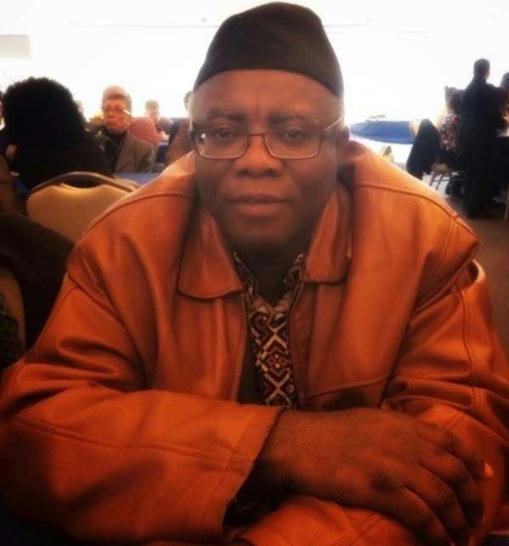
If he is, indeed, really interested in raising the level of integrity of the WASSCE, both the West African Examinations Council (WAEC) administered examination and the diploma or certificate annually issued therefrom, we may have to, literally, begin from the beginning in accordance with that evergreen and memorable Ibo/Igbo proverb which my globally celebrated late mentor and teacher, Prof. Chinua Achebe meticulously captured in his classic novel “Things Fall Apart” (1958), which runs as follows: “The man [or woman, for that matter] who does not remember where the rain began to beat him, can also not say [or remember] where he dried his body.” In short, playing fast and loose or the politics of selective amnesia with the perennially abject and unsavory quality of Ghana’s public education system is highly unlikely to get any of us very far, especially those of us in the public education business who really care about the future destiny of both our beloved country, Ghana, and the destiny of our proverbial Leaders of Tomorrow. You see, it was the Talibanistic or anti-intellectual governance policies of both the Jerry John Rawlings-led junta of the Provisional National Defense Council (PNDC) and, subsequently, the faux-civilianized establishment of the National Democratic Congress that brought the quality of our public education system this scandalously and execrably and abjectly low. And on the latter count, I am thinking about that era of unpardonable and irredeemable criminality when the leaders of the National Democratic Congress, including, of all leaders, the globally respected and expertly erudite Prof. John Evans Atta-Mills, ran a 3-year Senior High School System and Curriculum, scandalously ignoring the morally and academically significant fact that the old British-inherited 5-year system had served us in unquestionably good stead. But, perhaps, what we ought to be emphatically highlighting here is the respective magnitude of the public education budget and development policies pursued when either of our major political party establishment has been at the helm of our national affairs. I bet my proverbial bottom-dollar, Dr. Apaak, that the rest of the world could care less whether our children and grandchildren sleep their way or bribe their way through their West African School Certificate Examination, trust me. You see, how we prepare our younger generation to effectively compete with or against their counterparts in our highly technological global socioeconomic culture is decidedly our own damn frigging business. The world is much too steadily focused on its progress and development to stop and watch what our chucklehead leaders are doing with the destiny of our youths and our collective national destiny, of which Ghanaians are inescapably and incontrovertibly our own masters and architects.
“Etwitwa mini suro ayaya nna”. That is an Akan proverb which loosely translates as, “the cut throat fears to sleep in supine position, lest his own throat be slashed” Muhamadu Bawumia, Ghana’s Vice President, is currently overwhelmed by a mortal fear of the NDC as he is reported to have told participants at a retreat for Majority NPP MPs and members of the Executive, that the NDC is planning to frustrate his party’s efforts at governing. The exact quote attributed to the loquacious Vice President is as follows, ”the propaganda machinery of the NDC is well oiled using their representation in Parliament. Every conceivable government intervention or intention will be seriously attacked. They will question the government’s promises, they will question the government’s achievements and they will question the government’s intention, they will unleash attacks both on the floor of Parliament and outside the floor”.
Despite the fact that enforcement of the new fees for motor vehicle numbers and driving licences might have commenced from July 30, this year, the conduct of public hearings in different parts of the country to enable the motorists to add their voices to the upward review of the fees should have been embraced. What the JTB has done amounts to going ahead to shove a man’s head in his absence contrary to the wisdom and admonition conveyed to humanity through the treasured Yoruba proverb that “you do not shave a man’s head in his absence.” Regrettably, the heads of the motorists were shaved in their absence with those behind the haircut failing to do a good job. The upward review is unfriendly; to say the least, with each new fee becoming a giant leap from the old one.
The ATHENA Leadership Award is presented to an outstanding leader who is honored for professional excellence, community service and for actively assisting women in their attainment of professional excellence and leadership skills. - Roya Bruce | Category Manager, Steelcase Inc.
“An African proverb that encapsulates my work and leadership style says, ‘If you want to go fast, go alone. If you want to go far, go together.’ This speaks directly to the ATHENA principle at my core: collaboration. It’s why as a lifelong athlete who has played everything from basketball, tennis, volleyball, track, and softball, my favorite sports have always been team-oriented. I know I’m at my best when working with others.”

Loosely translated, an old African proverb says: ‘A person is a person because of other people.’ Many people made Siya Kolisi, the Springboks rugby captain, the person he is today. Famously, they are the women who raised him, the wife who inspired him, his teammates who seemingly will follow him barefoot over broken glass, his children who remind him why he plays the game that made him a star, and the coaches whose names we know. This week, I talked to a lesser-known coach of Kolisi’s – Fred Swarbrook, from Derby, England. Swarbrook is the high school coach we all remember: comfortable with any sport. Because he really is a coach’s coach. He has a great coach’s voice too: “The boys heard me before they saw me.” Ruddy, plainspoken, and ready to laugh, Swarbrook was a breath of fresh air. By the end of our chat, I was ready to run up Brickmaker’s Kloof for him, a steep hill in Port Elizabeth (renamed Gqeberha, the Xhosa name for the Baakens River that runs through the city to the Indian Ocean). A good, tough man. So, how did a Derbyshire cricketer come to be in South Africa? It started with a conversation at Lord’s in the 1970s, when Fred was in his early twenties. “My friend and I were playing at Lord’s,” he recalls. “It was a Monday. In August. We wondered what we were going to do in the winter. So, it was why don’t we go to South Africa? We wrote to the provinces. I got a reply from Griquas in Kimberly. He got a reply from Transvaal. So off we went. When we got to passport control, I told him I would see him in six months’ time at the same place.” Swarbrook was homesick at first. He walked around the whole town of Kimberly. “It took me 20 minutes.”
Loosely translated, an old African proverb says: 'A person is a person because of other people.' Many people made Siya Kolisi, the Springboks
There is an African proverb which states that “people are like chameleons; circumstances make them change their colors”. This proverb is so true to current political situation in The Gambia. A lot of People who fought against military dictatorship in the country have forgotten so soon and they have changed colors. These chameleons are defending the evil alliance between Former Dictator Yaya Jammeh’s APRC and President Adama Barrow’s NPP. The latest chameleon is Mr Jeffery Smith, a former Staff of the Robert F. Kennedy Center For Justice & Human Rights.
Breakfast Television’s Sid Seixeiro congratulated the teen for her impressive run leading up to the finals: Zulu (South Africa) proverb. Sleep on your wound (lala nge-nxeba). Meaning? Bear your pain, disappointment. Leylah Fernandez is doing exactly that, right now. The good news is that she got there, U.S. Open Finals against all odds. Win or lose, Canada love is intact.
An African proverb says that it takes someone who knows the history of a place to locate the boundary of the land. This is the reason we all should be grateful that the teaching of history as a subject in secondary schools has been restored. The knowledge of history comes in handy in the current conversation on the administration of VAT in Nigeria. It seems, however, antithetical that the people who have the benefit of history on their side are the ones leading agitation that States in Nigeria should begin to collect Value Added Tax (VAT) instead of the Federal Inland Revenue Service (FIRS), which by extant laws is responsible for collection. To pry further may unearth a different matter altogether.
|
Scoop it Creator
Charles Tiayon
|




